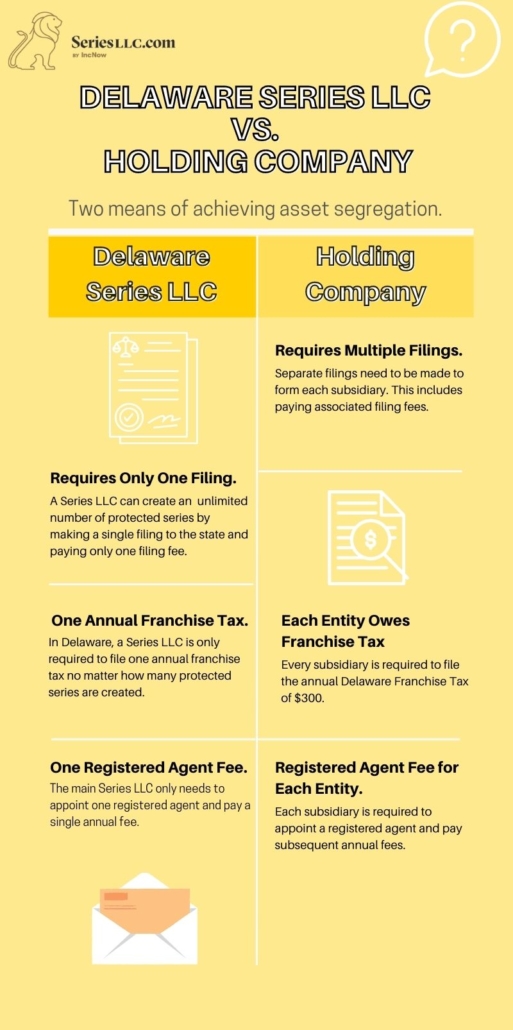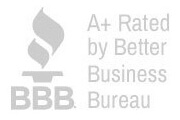What Are Separate Series Agreements and Do I Need Them?
Many business owners familiar with traditional LLCs know that LLCs are controlled by an Operating Agreement. An LLC Operating Agreement is a private contract between an LLC’s members establishing their ownership percentages and management responsibilities in the company.
Series LLCs also use Operating Agreements. However, managing a Series LLC the right way requires preparing an additional set of documents called “Separate Series Agreements.” Separate Series Agreements are important for preventing disputes between Series LLC members and protecting company assets.
We cover what Separate Series Agreements are, what they should include, and why they are important.
What Are Separate Series Agreements in a Series LLC?
A Separate Series Agreement is essentially a mini-Operating Agreement for an individual protected series under a Series LLC. These Agreements are private contracts signed by the Members of a Series LLC who are also Members associated with that particular protected series.
A Series LLC is able to establish an unlimited number of separate cells, called “protected series”. A protected series has its own limited liability shield, similar to an LLC. If members properly associate business assets with a particular protected series, these assets receive protection from the liabilities of each other protected series therein and the Series LLC as a whole.
“Separate Series Agreements are important for clearly defining the ownership and management responsibilities of everyone involved in a Series LLC.”
For example, a serial entrepreneur operating multiple e-commerce websites can associate each online store with its own protected series. This way, the assets of any individual store, like its inventory, should not be subject to the liabilities of a separate store.
How to Prepare a Separate Series Agreement.
A well prepared Separate Series Agreement should include the following:
-
List the Series Members.
A Separate Series Agreement should list which Series LLC members are associated with a particular protected series. The Agreement should also detail each member’s individual ownership percentage in the protected series.
Series LLC members are able to structure the ownership of their company in any way that they want, so long as all members consent to the arrangement. This also applies to protected series. A member can maintain ownership in the Series LLC company as a whole without having ownership of any protected series.
It is advisable to include all members as owners of each protected series proportional to their percent interest in the Series LLC company as a whole. This simplified arrangement can reduce the likelihood of disputes between business partners.
Members of a Series LLC can be susceptible to becoming jealous of the success of other businesses held by separate protected series. By including all members in the ownership of each protected series, Series LLC owners can better align incentives and avoid internal conflicts.
“A Member can maintain ownership in the Series LLC company as a whole without having ownership of any protected series.”
-
List the Series Managers
Separate Series Agreements should name the managers of the protected series. Managers are authorized to carry out specific actions on behalf of the series. These may include:
-
- Opening and closing business bank accounts;
- Managing associated business assets;
- Buying and selling property, and
- Making necessary legal decisions.
Series LLC members themselves can be managers of a protected series. However, members can also appoint third party managers. A protected series can even list a business entity, like another LLC, as its manager. Series LLC members can maintain ownership in a protected series without having any management responsibilities pertaining to that series.
Separate Series Agreements should clearly define the management responsibilities of each individual involved in a protected series. Properly documenting the distinct responsibilities of each member or manager becomes increasingly important as the Series LLC organization grows and adds more protected series.
“Series LLC Members can maintain ownership in a protected series without having any management responsibilities pertaining to that series.”
-
Identify the Purpose of the Series
A Separate Series Agreement can include a “purpose” clause that limits the use of a protected series to certain activities.
A typical LLC Operating Agreement authorizes a company to engage in any lawful business activities. However, Series LLC members often establish protected series for specific purposes, whether it be to maintain an operating business, own a piece of machinery, or hold title to an income producing property.
Series LLC members can reduce the risk of conflict by limiting how a protected series can be operated. Members can achieve this by including a purpose clause in the Separate Series Agreement.
Why Are Separate Series Agreements Important?
Separate Series Agreements are important for clearly defining the ownership and management responsibilities of everyone involved in a Series LLC. Separate Series Agreements, paired with a well prepared Series LLC Operating Agreement, can plug certain holes that could potentially turn into costly disputes.
Entrepreneurs are often thinking about protecting their personal assets from business liabilities when deciding to form business entities. The truth is that most attacks on a business come from the inside, in the form of partner disputes.
Operating Agreements are typically the start and the end point for resolving disputes between Series LLC owners. Written agreements are an important piece to mitigating disputes between business partners. Business organizations require more agreements as they grow to mitigate risk.
Adopting Separate Series Agreements is an easy step that Series LLC owners can take to ensure that their organization functions properly. The Delaware LLC Act does not require Separate Series Agreements, however, it is best practice to have these agreements in place.
Read More –>What Is the Series LLC Operating Agreement, and Why Is It Important?

 How Much Does A Delaware Series LLC Cost?
How Much Does A Delaware Series LLC Cost?